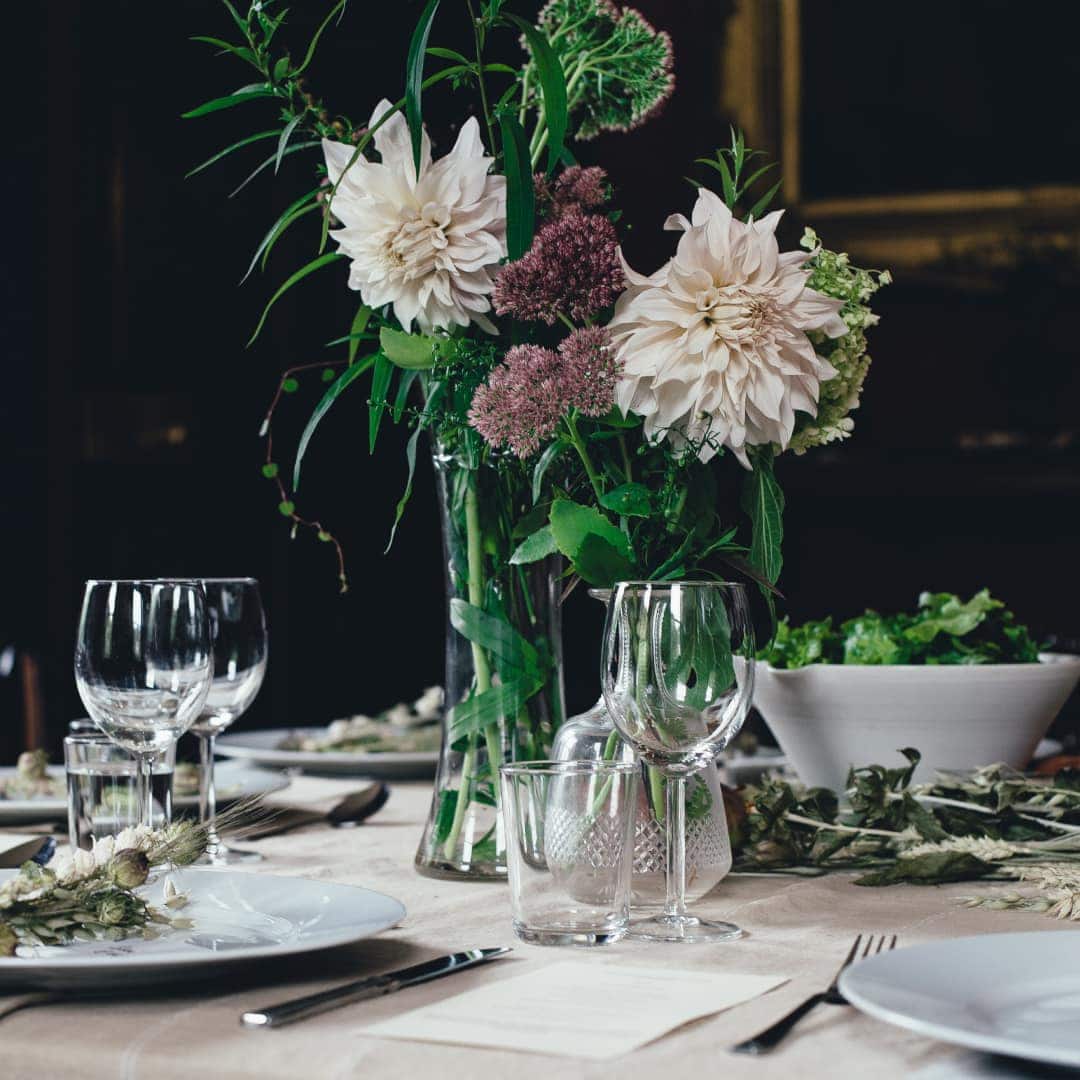Writing event proposals is an artform. Nail your event proposal, and you’ll score gigs with ease. Struggle with your proposal, and it’ll be tough to book solid work — even if you know you’d do a great job throwing the event.
Plus, not all clients are going to have the same standards when it comes to proposals. Here’s how to write a proposal for an event that even picky clients will love.
Don’t use a cookie-cutter event proposal template
You want to stand out as the best choice when you’re writing an event proposal. Do you think that’s going to be the case when you use the first free template you find online? Almost certainly not.
To get people to take you seriously, you need to create an original event planning template that does a few critical things.
First, you want it to have an appealing layout that conveys all essential information at a glance. It should follow a logical order and provide sufficient detail, while also not being too text heavy. Incorporating photos from past events and other visual items like renderings can be effective when done well. It’s a good idea to have a few people you trust look over your template before you send out any proposals so you can catch any mistakes before the client does.
Secondly, remember that clients will choose you because they love your vision and what you have to offer. You’re going to bring your own energy to the event, and clients want to see that every step of the way — including in your proposal. Incorporate branding when appropriate. This can mean logos, fonts, and overall design. It’s fine to draw inspiration and use ideas from templates you find online.
Bottom line: The event proposal template you ultimately create needs to be your own if you want it to dazzle potential clients.
Consider your word choice
The words you use can sometimes be just as important as what you’re trying to communicate. For example, it’s important that you sound engaged and excited about working with potential clients. Successful event planning depends on building relationships. Your clients want to feel like you truly understand their needs and expectations for their event. Engage in active listening, and you’ll get that across.
At the same time, you want to maintain a professional tone, so your clients feel that they can trust you with throwing the event of their dreams. No one is going to be interested in hiring you if you just ramble on without telling them exactly why you’re the right person for this specific job.
It’s also imperative for you to think about what words you choose to describe the client. Do a little bit of background research to see how they talk about themselves online. Using some of the same language can affirm that you’ve done your homework and understand their wants and needs.
Prioritize the client’s vision
At the end of the day, the client wants to be satisfied with your services. There’s no way for them to know how well you’ll meet their expectations if you’ve never worked together in the past. You’re going to do a much better job convincing them of your capabilities if you address their vision in your proposal.
Run through all the things they’re looking for from their event. This includes the basics, like the date, time, location, and number of guests, as well as creative goals, such as aesthetics and theming. Will other vendors be needed for catering, music, or photography? Strategically plan how you want to address all of these elements in your event proposal. It’s important to prioritize based on what you anticipate the client will be most passionate about.
For instance, if you’re creating a wedding planner business proposal, check off all the must-haves on the couple’s list. If they want a more traditional wedding on a mid-range budget, don’t suggest they have the ceremony on top of the Eiffel Tower. On the flip side, if a potential client says a unique location is important to them, don’t say they should have the reception in a hotel banquet hall.
You also don’t want to dedicate a ton of space to raving about the special embossed napkins you’ll have for the event. That’s a nice feature, but it’s not going to make or break the whole proposal. Instill confidence in potential clients by giving the most space to the most important elements of the plan — and work in descending order from most important to least important.
Show why you’re right for the job
You know you’re the right person for the job. But how will your client know that? Show, don’t tell. But isn’t an event proposal supposed to be all about telling, you ask? Not quite. Simply telling your clients what you’ll do is way less convincing than showing them what you’ve already done.
The words on your event planning proposal are there to give concrete details about just that — your plans. How you execute is what’s going to show the client you’re the right fit.
Everything needs to be tight. If there are mistakes in your proposal, the client is going to assume you’ll also have issues when it comes to running their event. This is another area where photos can give you a big boost. It’s one thing to say you’ll do X, Y, and Z for the client. It’s a lot more convincing when you can show a picture of you doing those things at another event in the past. Not only will this lend you legitimacy, it’ll give the client a clearer idea of what to expect.
How to present price and seal the deal
Cost is one of the biggest points of contention when it comes to event planning. But just because pricing is a tough bridge to cross doesn’t mean you should avoid doing it.
You want to give accurate price estimates in your event proposal for a few reasons. Most importantly: there’s no reason to waste everyone’s time if the price isn’t going to work out. It’s a good idea to itemize your budget so the client can see how much is being allocated to each element. Doing this will give the client a better reference for what they’re going to get for their money. Be ready to back up every price point you propose, too.
We recommend organizing this section of your proposal into two parts: Services Offered and Services Provided.
Services Offered
Begin with an outline of all the services you can offer during the event. For small events like a baby shower or dinner party, you can keep this simple. Make a list of bullet points that lists out all of your duties, such as hiring vendors and day-of staff, setup and cleanup, coordinating vendors and activities, or ordering food and beverages. Next to each item, list the cost. If applicable, list the vendor you’ll hire.
For large events such as weddings, you may want to break these service sections out by function. You might organize your proposal using a timeline of the event, and then outline the different services offered and provided for each function, such as the rehearsal dinner, cocktail hour, and so on.
Pro Tip: If you offer upgrade services (such as extra staff or a wedding send-off with sparklers), include those here, too — and be sure to include a photo. You never know what might catch your client’s eye!
Services Provided
Next, break down each portion of the event with a short, 1-3 sentence summary explaining what’s offered with each service, which vendor will be offering it, and the cost. For example, under Event Planning, you might introduce the name of the event coordinator working the event, their availability, and the cost for your event planning services. Under Catering, you can provide an overview of your preferred vendors, what they can offer, and pricing. Include a section for each portion of the event, such as setup, registration, food, bar, music, entertainment, and breakdown and cleanup.
Define your event planning timeline
Put your clients at ease by giving your clients a rough outline of when everything will be completed. Highlight key milestones, such as when you expect to have all the vendors hired. Also make sure your clients are aware of the pieces they’ll be responsible for, such as attending a cake tasting or finalizing their guest lists.
Include policies and conditions
It’s important to let the client know your policies and conditions as soon as possible. For example, always address how you handle cancellations. You don’t want the client to call you the day before the event to call it off. By that point, you’ll already have put in tons of work into getting things in place. Having a policy that only lets the client cancel before a certain time frame ensures that you’ll still get paid even if they have a last-minute change of heart.
Pro Tip: Consider including an expiration date on your proposal, such as 30 days. This creates a sense of urgency and ensures you don’t end up double-booking yourself!
What to include on your event business proposal:
To recap, here’s everything you need to include when writing an event proposal:
- Your branding, company logo, and contact information
- A description of the event
- Proposed pricing for all services
- Event planning timeline
- Your cancellation and payment policies
Tie it all up with a compelling elevator pitch. Provide a brief overview of who you are and your event planning business. Include details like how long you’ve been in business, the types of events you specialize in, and any awards or recognition you’ve received (or big-name clients you’ve worked with).
You’re almost there! There’s just one more thing you can do to earn your client’s trust: tell them you’re insured.
Do you need insurance when planning an event?
It’s essential that you show the client you’re insured. Most people aren’t going to hire you unless you can provide them with a Certificate of Insurance or some other proof that you’re covered against claims of liability.
When you get events and entertainment insurance from Thimble, you’re going to be getting a form of General Liability insurance. This type of insurance protects against two important types of liability claims: damages from bodily injury and property damage. So, if a third party suffers property damage or bodily injury as a result of your participation in an event, your coverage will kick in to cover the costs of investigating the claim, defending you and paying any settlement amounts, so that you — or the client hiring you — will not be forced to pay out of pocket.
Protect your planning with Event Planner Insurance
An event proposal is your way of leaving a shining first impression on a client, so it’s key that you put your best foot forward. Following these guidelines can help your proposals stand out from the rest.
Crafting the perfect event proposal takes work, but your business deserves it! Your business also deserves to be protected from liability. Get covered in seconds with Thimble’s Event Planner Insurance. Just tell us your ZIP code and a few quick details about your event planning company — and boom, you’ll get your instant policy, and certificate of insurance in your inbox!










